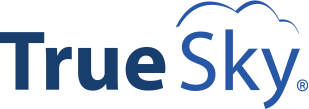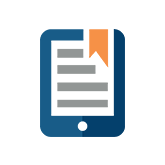How Robust Budgeting Tools Can Transform Your Food and Beverage Business
The food and beverage industry is a highly competitive and dynamic sector where margins are often tight, and operational costs can fluctuate rapidly. In this environment, effective budgeting is not just a helpful tool but a critical component for success. Robust budgeting tools can provide the insights and controls needed to manage finances efficiently, optimize resources, and ensure long-term profitability.
Streamlined Financial Operations
One of the primary benefits of robust budgeting tools is the simplification of financial processes. These tools can automate many of the manual tasks associated with budgeting, such as data entry, expense tracking, and financial reporting. By reducing the administrative burden, these tools free up valuable time for business owners and managers, allowing them to focus on strategic decision-making and growth initiatives.
Automated processes also reduce the likelihood of human errors, ensuring more accurate financial records. This accuracy is crucial in the food and beverage industry, where small mistakes can lead to significant financial discrepancies over time. Streamlined operations enable businesses to maintain a clear and accurate financial picture, essential for making informed decisions.
Real-Time Financial Tracking
In an industry where costs can change rapidly due to factors like seasonal ingredients or fluctuating labor costs, having the ability to monitor expenses and revenue in real-time is invaluable. Robust budgeting tools provide real-time financial tracking, allowing business owners to see up-to-date information on their financial status at any given moment.
This real-time visibility enables quick adjustments to be made in response to changing conditions, such as increasing prices on a popular menu item when ingredient costs rise or cutting back on non-essential expenses during slower periods. With accurate, real-time data, businesses can make proactive decisions that help maintain profitability and avoid financial pitfalls.
Optimized Resource Allocation
Effective budgeting tools also play a crucial role in optimizing resource allocation. By providing detailed insights into where money is being spent and the returns on those investments, these tools help businesses allocate their funds to areas with the highest impact.
For instance, a food and beverage business might discover through budgeting analysis that investing more in marketing yields a higher return on investment than other areas. Alternatively, they might find that research and development (R&D) into new menu items or improving operational efficiencies can lead to long-term gains. By identifying these high-impact areas, businesses can strategically allocate resources to maximize their potential for growth and success.
Improved Cash Flow Management
Cash flow is the lifeblood of any business, and managing it effectively is crucial in the food and beverage industry. Robust budgeting tools help businesses maintain a healthy cash flow by providing insights into cash inflows and outflows, forecasting future cash needs, and identifying potential shortfalls before they become problematic.
These tools can also help businesses set aside funds for unexpected expenses, such as equipment repairs or sudden increases in supply costs. By ensuring there is always enough liquidity to handle operational needs and unforeseen events, businesses can avoid cash flow crises that could disrupt operations or lead to financial distress.
In conclusion, robust budgeting tools are indispensable for food and beverage businesses looking to enhance their financial management and achieve long-term success. By streamlining financial operations, providing real-time financial tracking, optimizing resource allocation, and improving cash flow management, these tools empower businesses to make informed decisions, reduce financial risks, and capitalize on growth opportunities. Investing in robust budgeting tools is not just a financial decision but a strategic move that can transform the way food and beverage businesses operate and thrive in a competitive market



